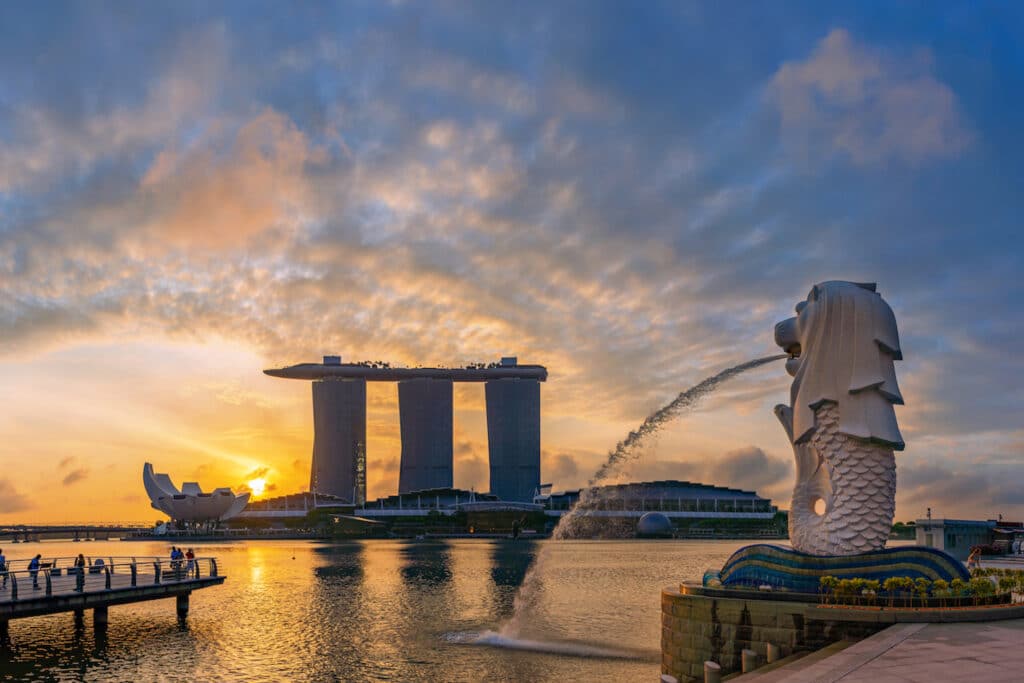
Australian businesses are bracing for another round of economic punishment after the Federal Government tore up two Belt and Road agreements between China and Victoria, prompting a warning from the Chinese Embassy that Australia ‘will only end up hurting itself.’
Tariffs & bans imposed by China in 2020 have already seen Australia lose at least $5.5 billion across multiple industries. With other prominent Australian politicians beginning to openly discuss the possibility of war over Taiwan, many are starting to wonder – will it only get worse?
These fears are fuelled in part by the Chinese embassy’s harsh response – they called it “another provocative and unreasonable move” and warned that “it is bound to bring further damage to bilateral relations, it [Australia] will only end up hurting itself.” Since then, diplomatic tensions have only deepened, with Defence Minister Peter Dutton claiming that “We will never surrender to Beijing” and Home Affairs Secretary Michael Pezzullo’s ‘Drums of War’ text providing comment on the potential for conflict between China & Taiwan. Australia is reportedly also considering revoking China’s recent 99-year lease on the Port of Darwin.
Chinas meting out of trade-based punishments has been widely condemned as an aggressive attempt at coercion, and the Australian government has long positioned its rhetoric around standing up to economic bullying by the emergent superpower. However, Australia has also faced criticism for being overtly antagonistic – or even war-mongering – in its language when discussing China.
Regardless of how you feel about the escalating war of words between the two countries, it is everyday Australians & their businesses who are left dealing with the tough everyday reality of the trade war. China relations are worsening. Is it time to take your business elsewhere?
Businesses suffer huge losses, but nobody’s really winning.
ABC’s Four Corners recently published an investigation into the industries affected by last year’s sanctions, and the stories of those affected are harrowing – at least $5.5 billion is forecast to have been lost. Michael Blake, who runs a Lobster processing plant in Hobart, told Four Corners that he expected a third of the lobster boats in Tasmania would have to quit after the price of their catches dropped from over $80 a kilo to around $25. He said he now spends much of his time on the phone, consoling distraught fishermen who can no longer make ends meet.
In the wine industry, China previously accounted for nearly 40% of all Australia’s wine exports – now it sits around zero, a loss of roughly $1.1 billion a year. Jason Zhao, the owner of Orchid Wines in the Barossa Valley, moved to South Australia from China over a decade ago and used his homeland connections to build a strong export relationship.
He says that he has lost 95% of his sales, with thousands of bottles sitting in storage. He also says that with a large Chinese diaspora community and a significant Chinese investment in the region, China’s sanctions are hurting their own people. Across other affected industries – like barley – the story is much the same.
Overall, Australia could be forecasted to lose as much as 6% of its GDP to the trade sanctions if they continue to worsen. In this forecast, based on simulations run by The Conversation, Australia would also see losses of around 14% to disposable income per capita. In comparison, China would lose only 0.5% GDP & 2.4% of income per capita. It’s worth pointing out, however, that China is beginning to suffer in other ways, with their international reputation reaching a historic low and its cities facing massive blackouts, likely due to a shortage of imported Australian coal. China denies this is the case.
What can we do? Diversify, diversify, diversify.
Waiting for China and our Government to work it out looks increasingly unlikely – the obvious answer seems to be that we should take our business elsewhere and find new avenues for exporting your products.
On an individual or business level, this is sound advice. Regardless of your political or ideological views on the matter, if you’re in a business or industry that’s dependent on Chinese exports and you’ve got a say in where your product goes, then now is the time to start diversifying your options and looking out for other avenues. As the trade crisis deepens, the hard truth is that it could be your business next on the chopping block.
Right now, it pays to consider China as a high-risk bet – sure, the potential returns are higher than you might find elsewhere, but the chances of you losing everything are also much higher. To be pragmatic, it’s a good idea to start doing the sums & forecasting now. If half of your business currently goes to China, it’s likely you won’t find just one new place to take all of that on. You’d likely have to find three different countries with markets for your product – and adjust your export overheads accordingly. When you’re weighing up those new markets, it’s worth thinking hard about the different geographic factors and how it intersects with your product or service.
For instance, if you’re aiming to find markets in higher-income areas like Europe or North America, you might find that you can get more money for what you’re selling. But the trade-off might be a sharp decrease in demand, due to high shipping costs and long wait times. Similarly, dealing within the Asia-Pacific region comes with its own sets of pros and cons. Not every country in our region has a favourable exchange rate, and many – like Japan – simply don’t offer much of a market for a lot of profitable Australian goods. These issues, of course, will depend significantly on your industry or your service, so it may be worth getting some advice.
Another thing to consider is your manufacturing process. When you’re diversifying your output, it’s smart to assess every single step in your exportation or importation supply chain. If you’re currently sourcing manufacturing in China, it could pay to source manufacturing in a more positively aligned country like Vietnam or Indonesia – where the costs are similar but the likelihood of fallout is much less. Vietnam in particular is doing extremely well in the face of COVID-19.
These days, one of the biggest factors when choosing a country for manufacturing purposes is instability around COVID-19. If your business involves you storing, processing or manufacturing part of your product elsewhere, then make sure it’s not in a country that isn’t stuck in a revolving door of hard lockdowns. It can have a huge knock-on effect to supply chains – think back to what Victoria went through last year!
How will this affect the bigger picture?
On a broader economic level, reshuffling international market forces won’t be so simple. As The Conversation points out, the shift in global trade would see less investment in Australia and a depreciation of the Australian dollar. Australia has still made attempts to reach out to other regional buyers for their major exports; Vietnam, Indonesia and Korea are often cited as major Asian players.
Similarly, India – with its large population – is often touted as a possible replacement, but the Government’s plan to increase Indian exports to $45 billion p.a. by 2035 pales in comparison to the $160b earnt from exports to China in 2019. It also remains to be seen how India will bounce back from a horrific second COVID wave currently sweeping their nation. Singapore, one of Asia’s wealthiest nations, could be another contender. A recent International Trade Report from the ABS saw exports to Singapore increase by $752m (67%) over a short period, partially offsetting a drop of $990m (-8%) in Chinese exports at the same time frame.
Unfortunately, there are no easy answers when it comes to resolving geopolitical and ideological conflicts between nations. For our money, a multi-generational investment in a more self-sustainable Australia – without turning our backs on global trade – would go a long way to avoiding these sorts of compromises and conflicts in the future. In the meantime, our hearts go out to the farmers and growers who are bearing the brunt of these sanctions. If you’re struggling to adapt your business to the changing trade environment, we’re always available for a chat – even if it’s just to provide some emotional support.
The information in this article is of a general nature. It does not take your specific needs or circumstances into consideration. You should look at your own financial position, objectives and requirements and seek financial advice before making any financial decisions.


